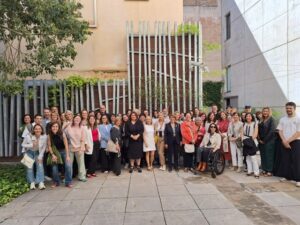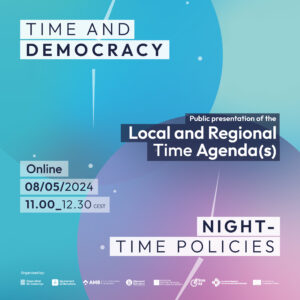Experts point out that European Union must do better than the US and adopt the natural time (permanent standard time), as it will improve health, safety, and economics.
The clock change causes abrupt negative impacts in health, safety, and productivity in our daily rhythm, especially in countries not aligned with the natural solar time, like in the case of Spain, France and Benelux.
The Spanish presidency of the EU Council (2023) could be a good opportunity to put the issue on the agenda and take a final decision for Europe as a whole.
The United States has taken an important step towards abolishing the time change. Last week, the U.S. Senate approved by an absolute majority to abolish the time change, which is a decision highly advocated (70% of the population according to a 2019 poll).
Chronobiology and medical experts and time change advocates welcome the US decision to pass a bill to establish a fixed, year-round national time in the U.S. However, they point out that adopting permanent “daylight saving time”, as suggested by the U.S. Senate, will have long term negative effects on health, economy and education, as it creates geographically unnatural time zones that are not properly aligned with the sun. Ticia Luengo, co-founder of the International Alliance for Natural Time (IANT), an international alliance of associations from around the world that urges governments to adopt the natural time that corresponds to each country, insists that “living in an unnatural time zone puts us at a disadvantage: it makes us and especially our youth more prone to obesity, under achievement and depression. It also negatively affects the immune system and general health, safety and the entire economy”.
The Spanish presidency of the EU Council in 2023 could be a defining moment.
Despite the European Union’s agreement to abolish time change, initially scheduled for 2019 and extended to 2021, the decision has not yet become effective. The reason is obvious. There is no agreement at the EU Member State level on which time zone to adopt for each country.
This was a central issue in the last Time Use Week, the meeting held in Barcelona in October 2021 where of experts addressed how to retake the debate on the time change at the European level, analysing the main reasons why it has not been implemented and defining actions to be taken in the coming months to urge the States to make it happen.
Experts such as Maria Nikolopoulou, member of the European Economic and Social Council and rapporteur of the opinion issued by this institution, comments that in the previous legislature both the European Commission and the Parliament agreed and pushed to abolish DST in 2021, but recalls that ” the EU Member States did not take the decision because we were in the middle of the pandemic and argued that they need more time to make the decision and decide which time slot they were staying in” Nikolopoulou insisted on the need to have a clear and approved transition plan that so as for the different sectors, such as transport, to get ready.
Additionally, professor Till Roenneberg, one of the world leaders in chronobiology, argued the negative impact on health and wellbeing of living in a time zone that is not aligned with our internal biological clocks. Spain, France and the Benelux are currently misaligned even during standard time and should ideally return to their own Western European time zone. Roenneberg also pointed out that different time zones co-exist both within the Iberian Peninsula and the United States without negatively impacting transport, commercial and social relations, and that “the transition cost when implementing this model is minimal“
The Barcelona Declaration on Time Policies signed in October 2021 by a hundred of world organizations related to the uses of time, has as a commitment to end the time change. As a result of the Declaration, a working group of European experts and advocates has been set up to work on this transition plan, to put pressure on Member States to approve the abolition of the time change and to encourage the launch of communication campaigns to inform the general public of the scientific arguments for ending the time change and keeping the most natural time possible. In the Future of Europe platform, there are several citizen petitions in this sense.
Marta Junqué, co-coordinator of the Barcelona Time Use Initiative (BTUI) and co-coordinator of the Declaration’s working group said “In July 2023, Spain will assume the presidency of the European Union. Given that Spain is one of the countries most affected by living in a time zone that is misaligned with natural time, Spain should put this issue back on the agenda and lead the EU to end annual time changes, adopt the permanent standard time and deliver a transition plan”. Junqué points out that the Declaration group will work as a network at European level to achieve this “urgent, needed and relatively easy” change.








